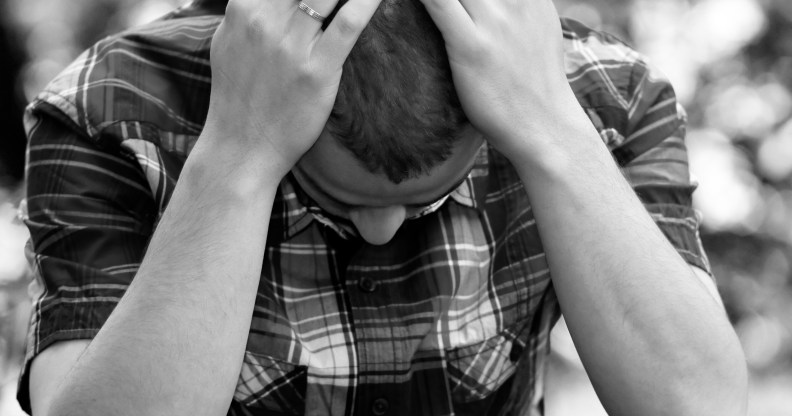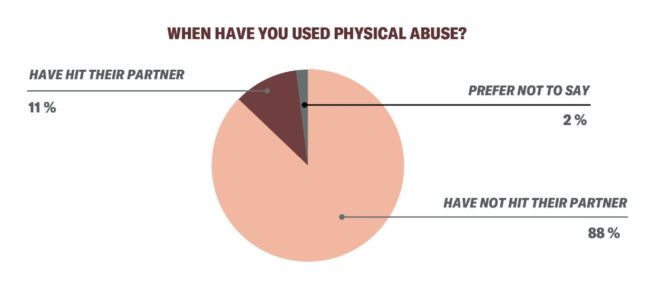Nearly a quarter of gay and bi men have suffered from domestic abuse

A new study has found around one third of gay or bisexual people are bullied at work. (Sander van der Wel/Flickr)
Nearly one quarter of gay and bisexual man have been the victim of domestic abuse from a same-sex partner, according to a new report.
The publication by gay dating app Chappy found that 22 percent of male respondents had suffered domestic abuse when in a relationship with another man.
Over one in 10 (11 percent) of men in the report said they had hit their same-sex partner.
More than one in ten of men have hit same-sex partner
More than a third (34 percent) of men surveyed that said they had used verbal abuse to “resort to ridicule to win arguments” with their partner.
The Chappy Report 2018 examined a number of issues facing gay and bisexual men in British society.
It surveyed 518 men from across the UK.

An infographic from The Chappy Report 2018. (Chappy)
In 2013, Stonewall’s report Gay & Bisexual Men’s Health found that half of gay and bisexual men have experienced at least one incident of domestic abuse compared to 17 percent of men in the wider population.
“Many people are familiar with physical abuse, but the nature of domestic abuse that affects men in same-sex relationships is less publicised.”
—The Chappy Report 2018
“With a significant figure of respondents stating that help for those in the LGBTQ community being few and often hard to find,” Alexander Morgan, chief executive of sexual violence charity Stay Brave, said in the report.
“It’s important that we find a way to support victims and let them know that help is available.”
Gay and bi men face domestic abuse specific to their sexuality
The report noted that, for men in same-sex relationships, domestic abuse can include using financial resources against a partner’s will and outing a partner to their family.
“Many people are familiar with physical abuse, but the nature of domestic abuse that affects men in same-sex relationships is less publicised,” the report reads.
“For instance, the forcible outing of a partner to a homophobic family can cause isolation and further dependence on the instigating party; this is abuse.
“The utilisation of financial resources and power to direct the actions of a younger partner against their will; this is abuse.”
According to the ONS’ 2015 Crime Survey for England and Wales, nearly two million people in the UK suffer some form of domestic abuse every year.
This figure is made up of 1.3 million female victims and 600,000 male victims.

